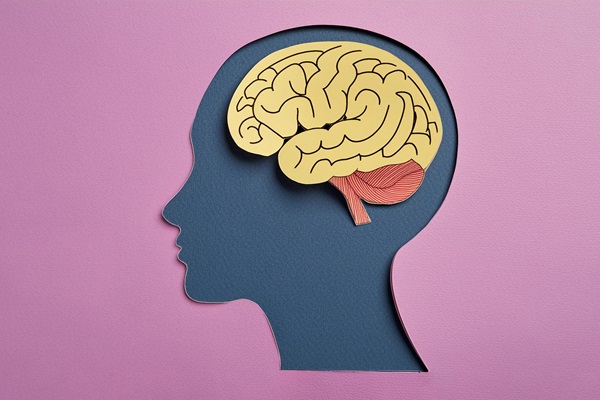Neurotrauma, or injury to the nervous system, can have lifelong effects on a child's neurological growth and overall health. Fortunately, there are practical ways to avoid serious injuries while promoting healthy cognitive development. Here is what you should know about neurotrauma and what you can do to help keep your child on track for healthy neurological growth.
An overview of neurotrauma
According to the latest research from the Centers for Disease Control and Prevention (CDC), there are close to 840,000 cases of neurotrauma — specifically traumatic brain injury (TBI) — among children each year in the United States. The groups most commonly at risk for brain injury are kids between infancy and age four, as well as adolescents aged 15 to 19. The most common causes include:
- Abuse
- Falls
- Sports participation and recreation
- Car accidents
- Gun-related injuries
Depending on the extent of the neurotrauma, kids and teenagers can experience effects ranging from mild to severe. Mild brain injuries temporarily affect brain cells but do not typically cause long-term damage. However, injuries that cause tissue damage and internal bleeding are more likely to cause physical and long-term brain damage.
Tips for avoiding neurotrauma and promoting healthy brain development
In many cases, neurotrauma is avoidable. The following tips can help keep children and teenagers safe in everyday life and promote proper brain development.
1. Foster safe play environments
Creating a safe environment for young children to play can help prevent neurotrauma. When taking kids to public playgrounds, make sure that they have soft surfaces, such as mulch or rubber, to cushion trips and falls. At home, secure heavy furniture to the walls to prevent tipping. Use safety gates on stairs.
Additionally, encourage children to wear helmets when riding bikes, electric scooters, rollerblades, or skateboards. Set a good example by wearing a properly fitting helmet and showing kids and teens safe routes to ride. These may include streets with minimal traffic, protected bike lanes, and sidewalks.
2. Educate kids about safe sports participation
While sports are essential for physical health and social skills, they also increase the risk of kids experiencing neurotrauma. Coaches and parents should emphasize the importance of playing safely and following the rules. Teach children the proper techniques for their sports, such as tackling in football or heading the ball in soccer, to minimize the risk of TBIs. In addition, regularly check that sports equipment, like helmets and pads, are in good condition and fit properly.
3. Implement a regular sleep schedule
Getting enough sleep is essential for brain health and development. Children and teenagers need more sleep than adults. Parents who establish a consistent sleep schedule can support their children's cognitive function and emotional well-being. A well-rested brain is also less susceptible to the effects of potential neurotrauma.
Encourage a bedtime routine that includes calming activities like reading or listening to soft music or white noise. Be sure to limit access to electronic devices before bed, as the screens emit blue lights that can interrupt healthy sleeping patterns. Kids and teenagers should try to go to bed at the same time every night to ensure a proper sleep schedule.
4. Encourage a balanced diet
A balanced diet of fruits, vegetables, whole grains, lean proteins, and healthy fats supports cognitive function and development. For instance, foods high in omega-3 fatty acids, such as fish, nuts, and seeds, promote healthy brain development. Limiting sugary snacks and beverages helps maintain kids' energy levels and concentration.
5. Be aware of the signs of neurotrauma
Parents, caregivers, and educators should all be aware of the signs of neurotrauma to ensure children get prompt medical attention if needed. Common signs and symptoms of neurotrauma include:
- Loss of consciousness or amnesia
- Changes in cognitive ability (e.g., attentiveness or speaking)
- Headaches
- Tiredness or fatigue
- Sensitivity to light and other vision changes
- Nausea and vomiting
- Changes in hearing
- Impaired balance and dizziness
While mild and severe TBIs share similar symptoms, they may be more prominent in cases of severe neurotrauma. These may include dilated pupils, extreme confusion, seizures, and slurred speech. Symptoms of neurotrauma may appear immediately after the injury or in the following days or weeks.
Accidents happen, and we are here to help
By following these tips, parents and caregivers can help prevent neurotrauma and promote healthy brain development in children and teenagers. However, our team understands that even with the best preventive measures, accidents happen. If you suspect your child has experienced neurotrauma, call our office to schedule an appointment.
Request an appointment here: https://www.drloudonpediatricneurosurgery.com or call Dr. William G. Loudon, Pediatric Neurosurgery at (714) 677-9463 for an appointment in our Orange office.
Check out what others are saying about our services on Yelp: Neurotrauma in Orange, CA.
Related Posts
General Tips From a Brain Surgeon for Brain Surgery Aftercare
Brain surgery is a complex and delicate procedure. It requires strict aftercare to ensure optimal recovery and few complications. Following the advice of your brain surgeon can help aid your healing process …
Exploring Options in Pediatric Brain Tumor Treatment
Pediatric brain tumor treatment is a highly specialized field that requires a multidisciplinary approach to ensure the best possible outcomes. Brain tumors are among the most common solid tumors in children, and …
FAQs About Hydrocephalus Treatment
Hydrocephalus affects people of all ages. Whether you are a parent concerned about your infant or are an adult with this condition, you likely have questions about hydrocephalus treatment. There are a …
How Minimally Invasive Neurosurgery Reduces Recovery Time
Minimally invasive neurosurgery brings minimal recovery time, improves comfort, and lowers risks associated with traditional procedures. With techniques like smaller incisions, faster healing, and precise interventions, these advanced methods provide effective treatment …


